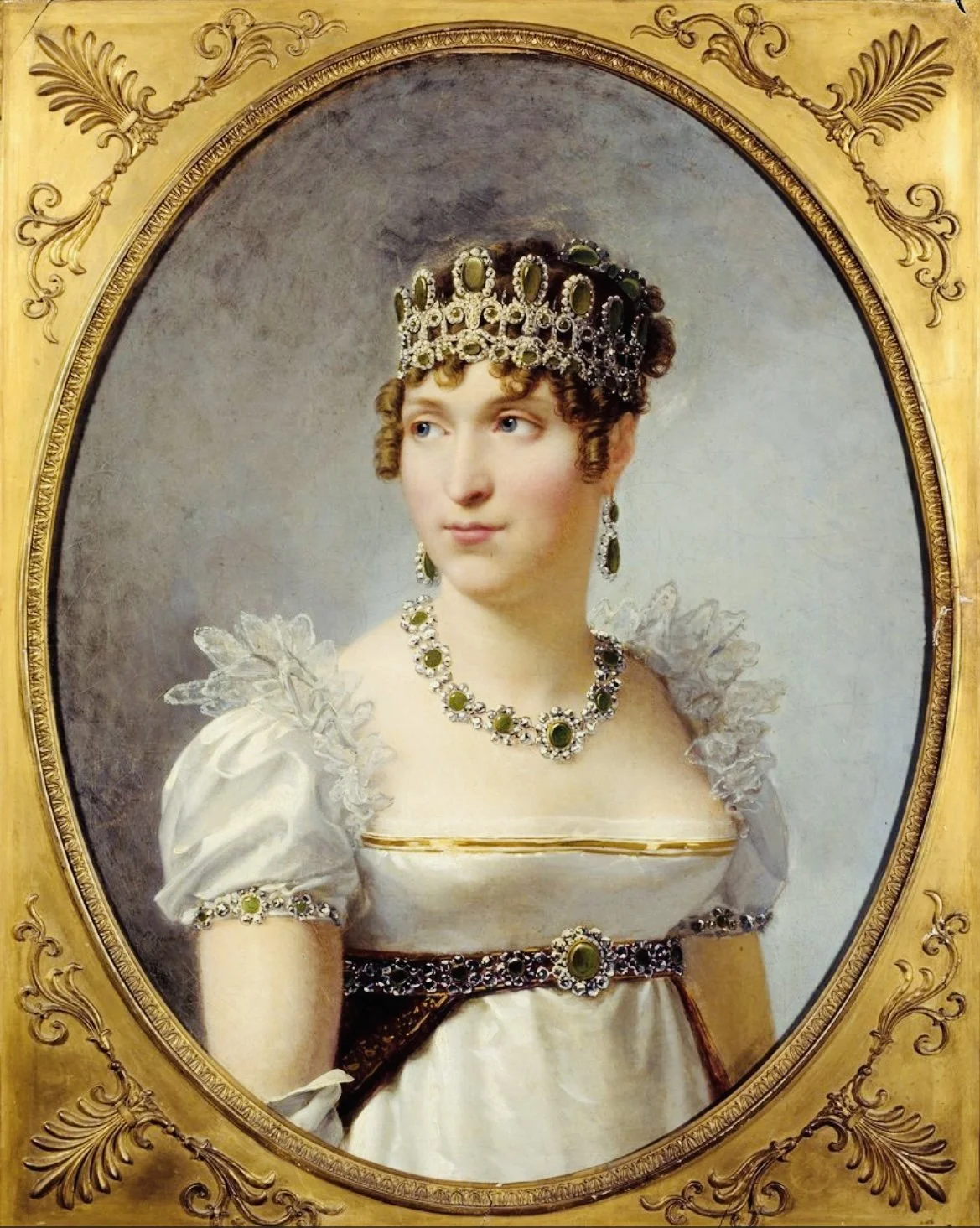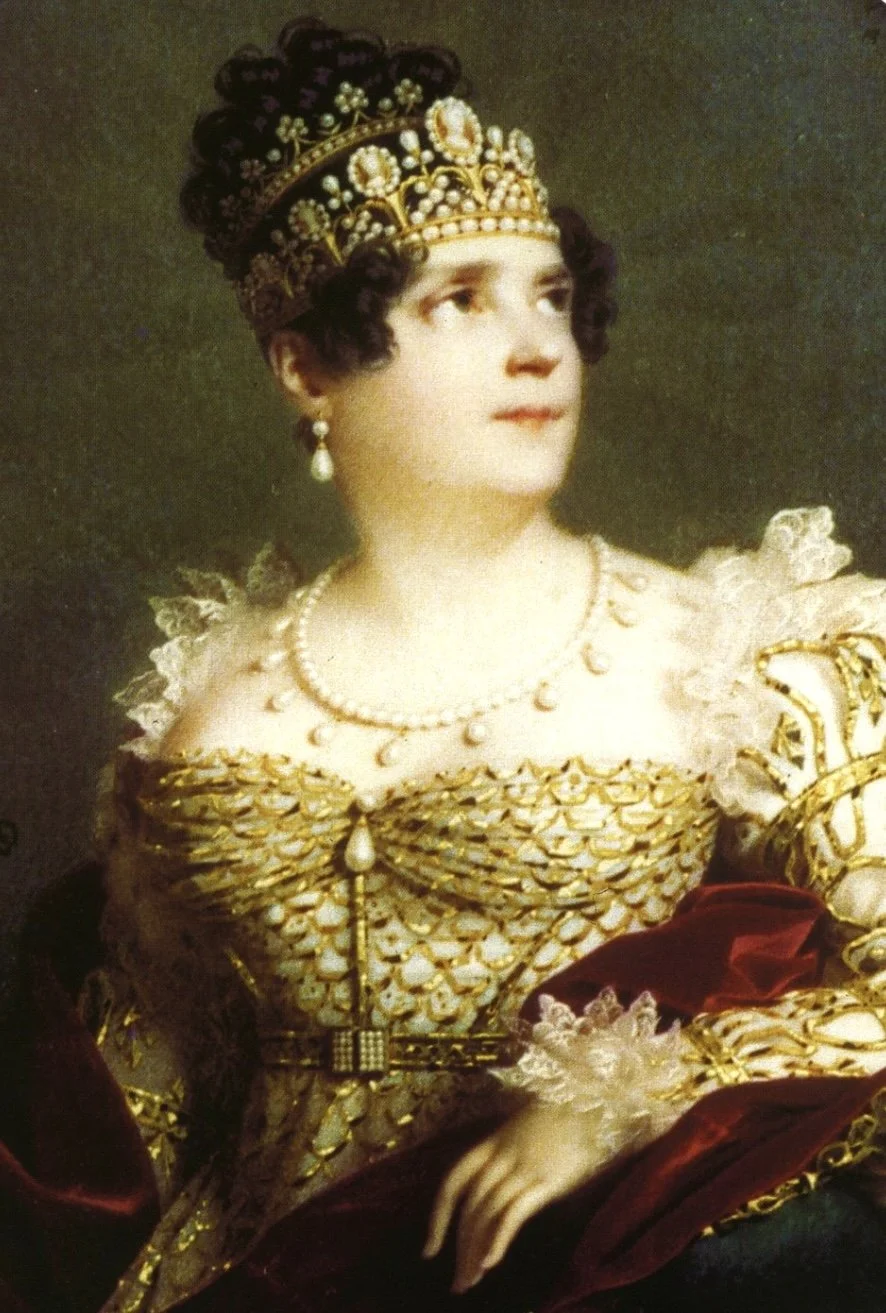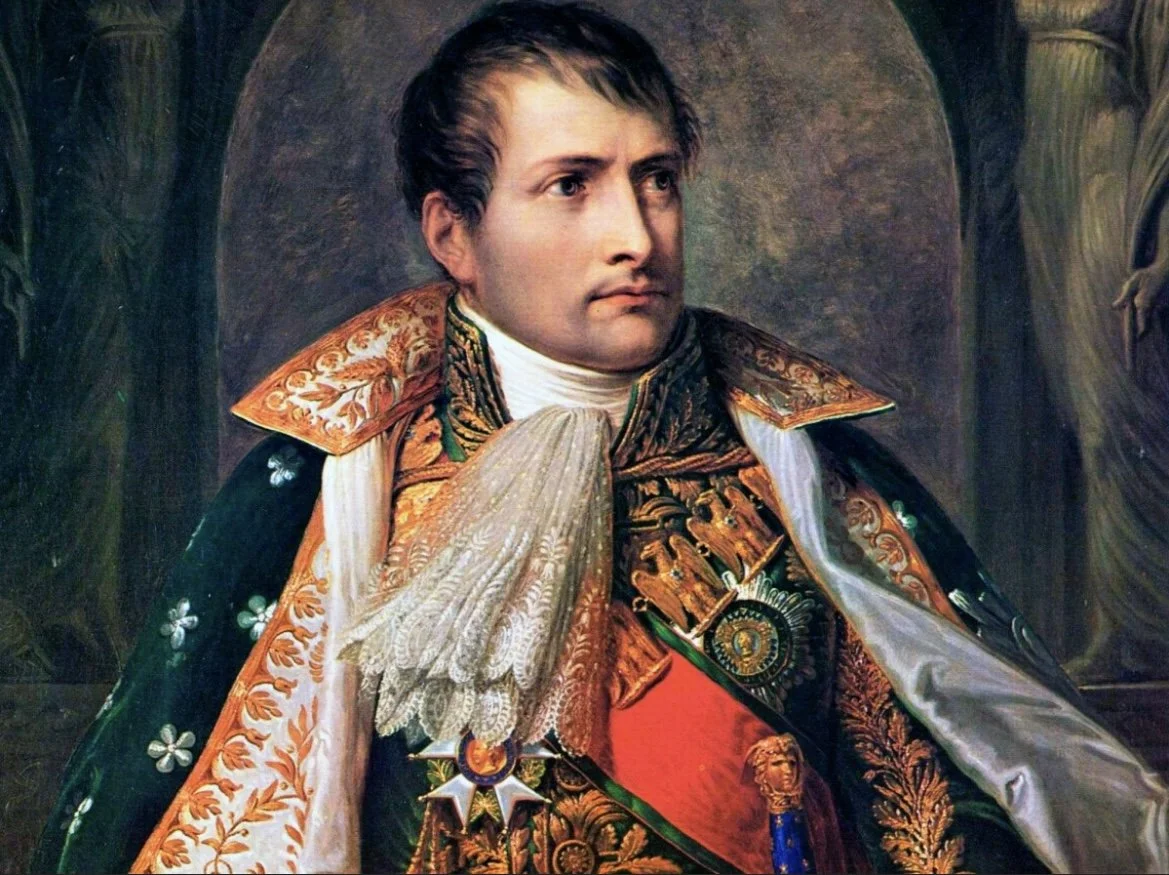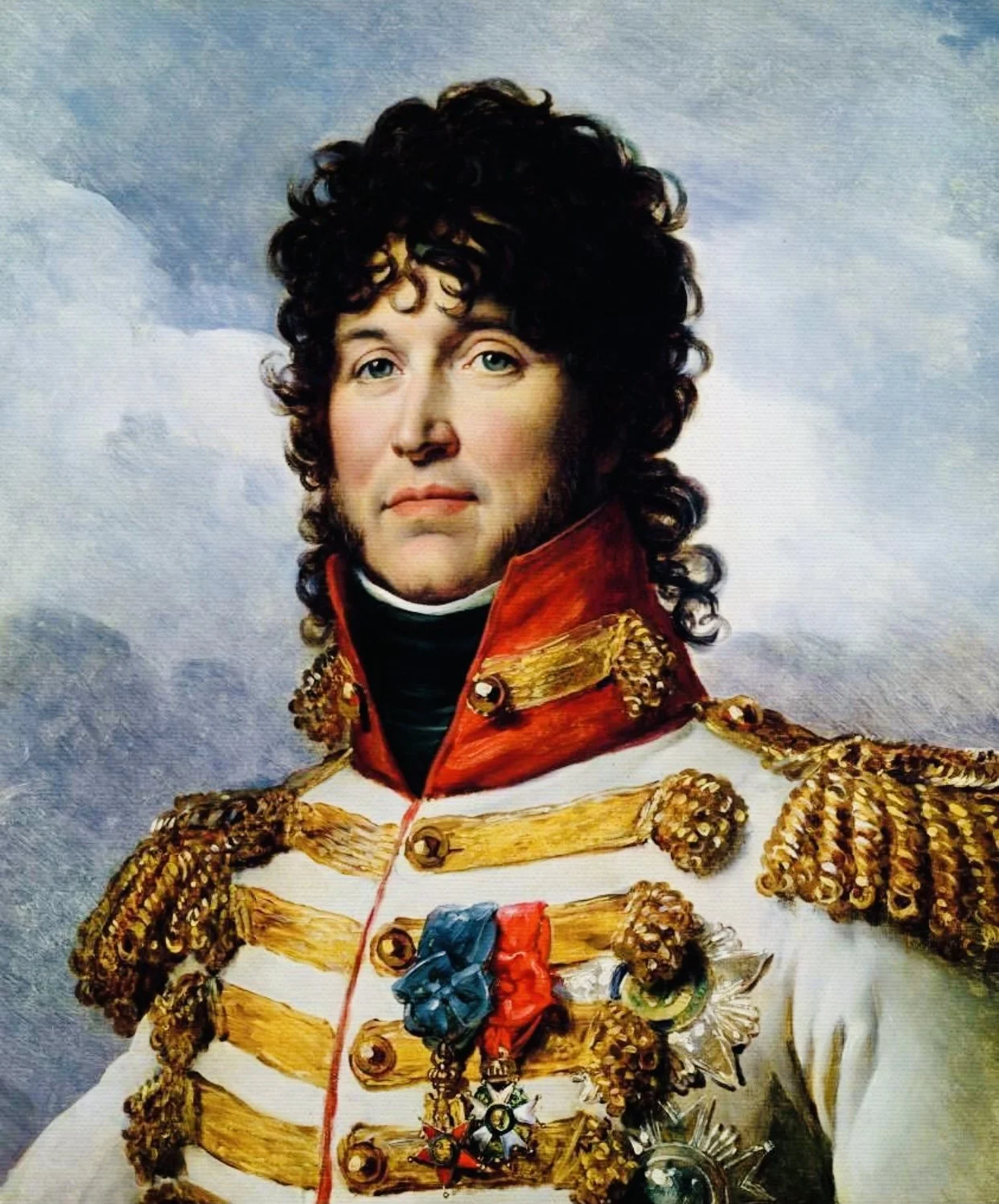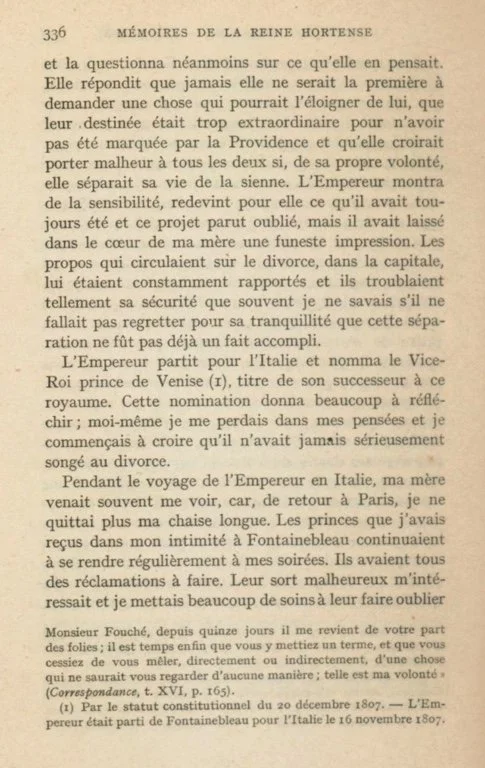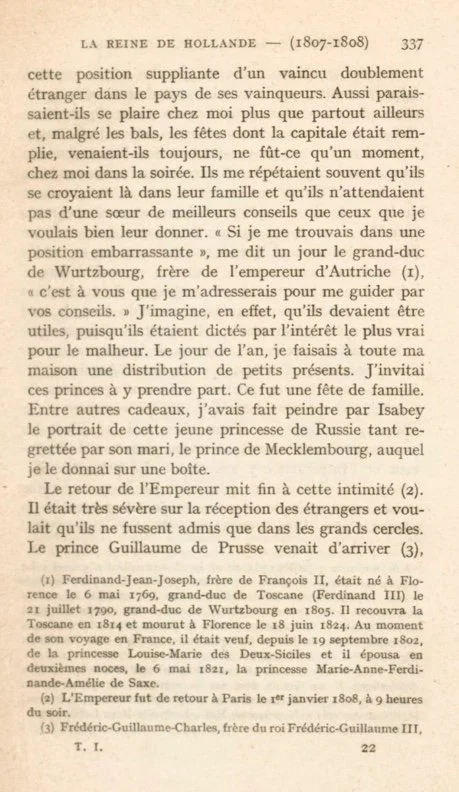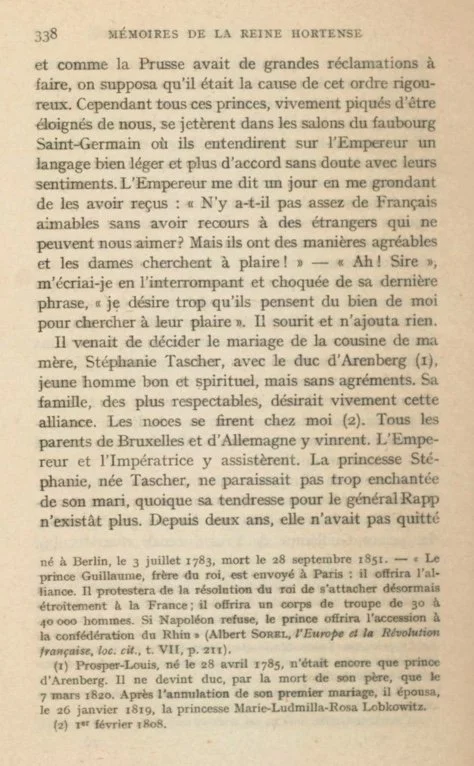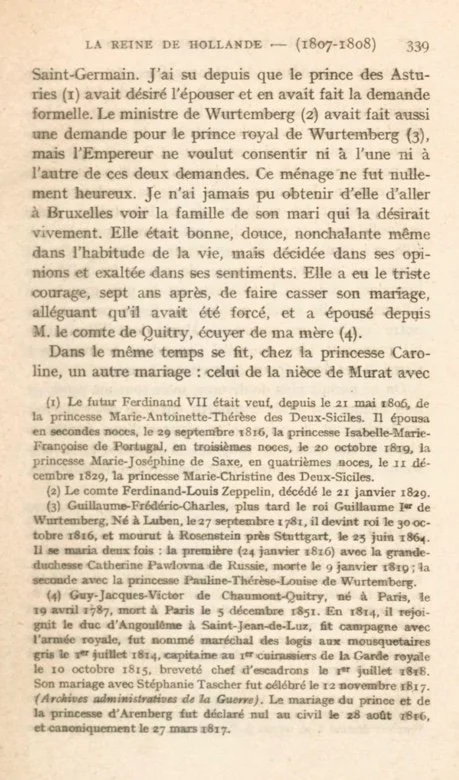Let’s have another look at Hortense’s Memoirs. If you want to read the book it is available for free at the side bar in English and French. Use the widget on the sidebar to translate the text below into pretty much any language.
Napoleon puts an end to social ties Hortense was making with Austrian and German royals because he says they could never genuinely care for genuinely populist Bonapartes and yet Napoleon still incorrectly believed he could overcome this hatred in his second marriage. We go over Napoleon’s story to learn where he went right and where he went wrong so hopefully we can do better this time.
Hortense’s memoirs continues:
The Emperor left for Italy. While there he conferred the title of Prince of Venice on the Viceroy. This title was also that of the heir to the Italian throne, and Eugene's new honor aroused much comment. I did not know what to think and began to believe that the question of a separation had never been considered seriously by the Emperor.
During the Emperor's trip to Italy my mother frequently came to see me, for having returned to Paris I was obliged to remain constantly on my chaise longue.
The princes whom I had received informally at Fontainebleau continued to attend my evening receptions regularly.
They all had some request to make. The unfortunate position they were in made me sympathize with them, and I took the greatest pains to make them forget that they were doubly in a position of inferiority, being vanquished enemies living as strangers in the land of those who had conquered them.
Consequently, they seemed to enjoy coming to my home more than going elsewhere, and, in spite of all the amusements, balls and other entertainments the capital offered, they never missed dropping in to see me at least for a few moments. They often told me that they felt at my house as if they were in the midst of their own family circle and that a sister could not have given them better advice than they received from me.
“If I ever find myself in an embarrassing position," the Grand Duke of Wurzburg, brother of the Emperor of Austria, one day said to me, "I shall ask you what I should do."
I can readily imagine that my advice was useful, for it sprang from a sincere sympathy for their misfortunes. On New Year's Day I gave little gifts to all my household and my intimate friends. I suggested to the princes that they consider themselves included among the latter, and attend the festivities.
It was a real family party. Among other presents, I gave a portrait by Isabey of the young Russian Princess whom her husband the Prince of Mecklenburg mourned so bitterly. The portrait formed the cover of a box. The Emperor's return put an end to these visits. He was very severe regarding the manner in which foreigners were to be received and declared they should be admitted only to the fashionable clubs and not to our homes.
Prince William of Prussia had just arrived, and as Prussia was protesting against a number of things people thought it was his presence that caused this rule to be made. On the other hand, the princes, vexed at being forbidden to call on us, sought refuge in the drawing-rooms of the royalist Faubourg Saint-Germain where they heard the Emperor spoken of in a manner which doubtless was more in accordance with their personal feelings.
One day the Emperor was blaming me for having received them and said "Are there not enough Frenchmen in the world that you have to invite foreigners who can never care for us whatever happens? But of course, they have such nice manners, and ladies always seek to make themselves agreeable to everyone."
“Ah, Sire," I interrupted, shocked by his last remark, "I am too anxious that they have a good opinion of my conduct to seek to make myself too agreeable to them."
The Emperor smiled and said nothing more about the matter. At that time, he had made up his mind to marry my mother's cousin Stephanie Tascher to the Duc d'Arenberg.
He was a nice clever boy but not attractive. His family, which was most respectable, was very anxious for the match. The wedding was performed at my house. All the young man's relatives from Bruxelles and Germany were present.
The Emperor and Empress also attended the ceremony. Princess Stephanie did not appear extremely enthusiastic about her husband, although her caprice for General Rapp was entirely a thing of the past. For the last two years she had remained constantly at Saint-Germain. I heard later that the Prince of the Asturias had wished to marry her and had made a formal request for her hand.
The Ambassador from Württemberg had presented a similar request on behalf of the Crown Prince of Württemberg, but the Emperor declined to consider either of these. The new couple were not at all happy. I was never able to persuade Stephanie to go to Brussels to see her husband's family, who were very anxious to have her do so. She was kind and gentle, even easy-going as regarded the details of her daily life, but obstinate in her opinions and overromantic in her emotions.
She had the melancholy courage seven years later to have her marriage annulled on the ground of constraint, and later she married the Comte de Quitry, my mother's equerry. At the same time another marriage took place at the house of the Princess Caroline, that of Murat's niece with the heir of the Hohenzollern family.
The Prince's mother was present. It was the second time she had come to Paris since so many changes had taken place in our private fortunes. She had done much to keep her husband on his throne, and we were pleased to think that our long friendship had proved useful to his dynasty.
I recalled how kind she had been to us during the Revolution, and I always received her at my house as though she were my mother. She often repeated that she should have wished to confer a title on me.
As of all human weaknesses the one most common in Germany is a desire to be related to royalty, the Princess would have preferred to have her son marry some young member of our family rather than a relative of the Murats, whose rise in station she considered rather too recent.
Nevertheless, the marriage was a success and the couple are still happy. Nothing more was said about the divorce, but everything indicated to me that the Emperor was torn between a desire to have a son and heir and a reluctance to separate from the woman whom he loved and who had always been so devoted to him.
The original French is available below:

